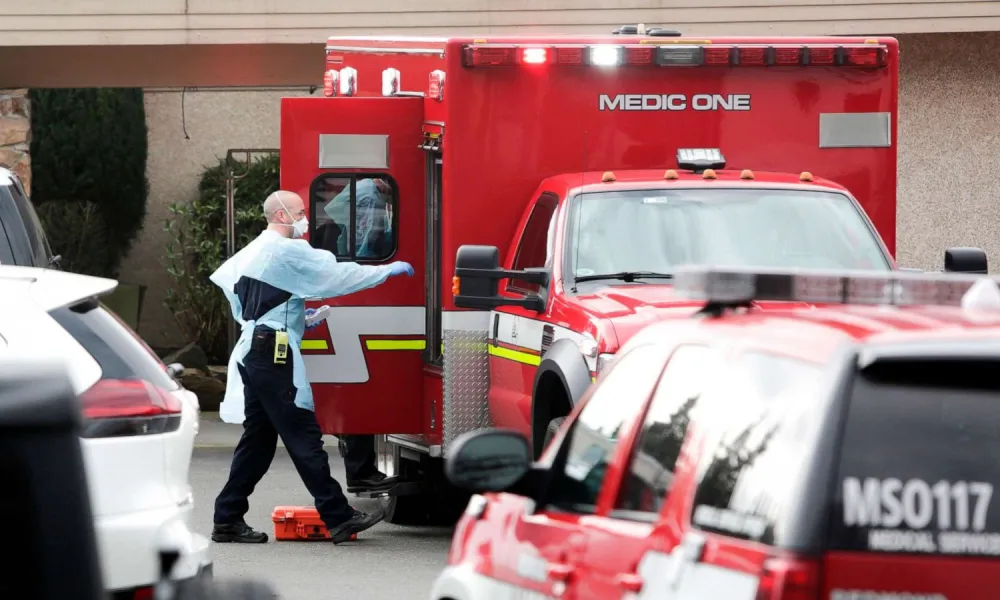Accountability
Surging fuel prices force some emergency responders to cut services

Amid climbing gas prices, agencies that provide emergency services may not immediately respond to non-emergency calls and will cut back on patrols to save on gas.
“We instructed our officers to not idle their vehicles and to do stationary traffic control rather than patrol and drive all over the place just trying to find violations,” said Scott Matice, captain of the Allegan County Sheriff’s Office in Michigan.
Matice said that calls where evidence doesn’t need to be collected will be taken by phone and that further gas increases could force the department to limit mileage on vehicles. “We want officers to be smarter about their patrol but still visible,” Matice said.
This news comes after the average cost of a gallon of regular gas reached $5.01 on Wednesday. By comparison, the average price was $3.07 the same time last year, according to AAA.
In Indiana, the Honey Creek Fire Department will restrict building inspections, use smaller vehicles more frequently and won’t allow firefighters to drive to training courses to save on fuel costs, according to Chief Thomas High. He said his department has responded to 960 calls this year but projects it will get more than 2,000.
In Colorado, John Frank, fleet manager for the South Metro Fire Rescue, said it plans to offset gas costs by having staff maintain and repair their own vehicles instead of outsourcing the work. The department also won’t upgrade its fleet.
“It is important to understand, fuel is always your highest cost. It’s something that we monitor very regularly,” Frank said, adding the department doesn’t have a contract with a fuel supplier to supplement gas prices.
West Virginia’s Cabell County Sheriff Chuck Zerkle fears rising gas prices will put his department over its fuel budget and require it to siphon money from elsewhere.
“If I can’t get any relief, I’ll have to start cutting equipment,” Zerkle said, adding that his department won’t purchase at least six new cruisers at $50,000 each.
Deputies could also stop responding to non-life-threatening 911 calls, he said, but noted that would be a last resort if gas prices rise further and more funds can’t be allocated from the county government.
“The public expects to make a call and somebody comes,” the sheriff said. “They want to see you out on the road being visible and deterring crime. People expect us to be there, and we’re going to be there for them.”
Other emergency response agencies also said they will have to find a way to continue normal operations as fuel prices rise.
“We’re not really in a business where we can cut back on services,” said Greg Porter, assistant director of the Ross/West View Emergency Medical Services Authority in Pittsburgh. He projected the authority will exceed this year’s fuel budget by at least $30,000 and said vehicles will now run for shorter periods of time.
“If folks call 911, we have to go. That’s just the nature of the business,” Porter said, adding that inflation has also driven up the costs of their medical and cleaning supplies.
Terry A. Hurlbut has been a student of politics, philosophy, and science for more than 35 years. He is a graduate of Yale College and has served as a physician-level laboratory administrator in a 250-bed community hospital. He also is a serious student of the Bible, is conversant in its two primary original languages, and has followed the creation-science movement closely since 1993.
-

 Accountability3 days ago
Accountability3 days agoWaste of the Day: Principal Bought Lobster with School Funds
-

 Civilization21 hours ago
Civilization21 hours agoWhy Europe Shouldn’t Be Upset at Trump’s Venezuelan Actions
-

 Executive2 days ago
Executive2 days agoHow Relaxed COVID-Era Rules Fueled Minnesota’s Biggest Scam
-

 Constitution3 days ago
Constitution3 days agoTrump, Canada, and the Constitutional Problem Beneath the Bridge
-

 Christianity Today20 hours ago
Christianity Today20 hours agoSurprising Revival: Gen Z Men & Highly Educated Lead Return to Religion
-

 Civilization2 days ago
Civilization2 days agoThe End of Purple States and Competitive Districts
-

 Executive1 day ago
Executive1 day agoWaste of the Day: Can You Hear Me Now?
-

 Civilization4 days ago
Civilization4 days agoThe Conundrum of President Donald J. Trump


